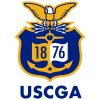Senior Projects
Electrical Engineering
During their senior year, Electrical Engineering (EE) cadets take a two-semester design course called Capstone Projects in Electrical Engineering I and II. The focus of these courses is to teach the skills and concepts needed to succeed as project officers. Teams of two to three cadets collaborate on a real-world Coast Guard electrical engineering project. Working with faculty and Coast Guard units, cadets develop a solution that meets the Coast Guard’s needs.
Classroom discussions primarily cover current industry and Coast Guard standards of project management and systems engineering while emphasizing students’ public speaking skills. Cadets take field trips to Coast Guard Electrical Engineering units to experience jobs they may be assigned to as junior officers.
At the end of each semester, cadets merge their learning from the classroom and lab to deliver a paper and presentation outlining their results. Approximately 10 to 20 percent of cadets will go on to present their final papers for these projects at national conferences.
Recent Capstone Projects
Electrical Engineering students have confronted a wide range of real-world engineering problems, with capstone design projects such as:
Autonomous Navigation of Small Unmanned Aerial Systems
The Coast Guard is investigating the use of small unmanned aerial systems to augment air and sea assets with long range communications and reconnaissance capabilities. These systems could provide a cost effective way to increase the operational presence of the CG. Cadets created their own navigation, guidance and control system for a two control surface delta wing aircraft and demonstrated their results both in software simulations and actual flights.
Industrial Control System Cyber Physical Mock-up and Security Analysis
The fundamental purpose of this Industrial Control System Cyber Physical Mock-Up and Cyber Analysis capstone project was to increase awareness of the threat to our nation’s critical infrastructure these systems pose, demonstrate the potential cyber-attacks that can be carried out on modern industrial control systems, and document measures that should be taken to mitigate the risks they pose. Cadets built a model design of a modern day industrial control system (ICS) related to the maritime domain and to demonstrate how its operations can be protected in the cyber world.
Lithium Ion Battery Management System
The emerging technology that enables electric and hybrid cars is also found in the marine industry. Cadets are currently working to design and construct a Battery Management System (BMS) that will monitor and control a lithium battery pack. The system will monitor voltage, current, and temperature and take corrective action to keep batteries in the safe operating zone and prolong cell life. The effects of sensor failure will be explored.
